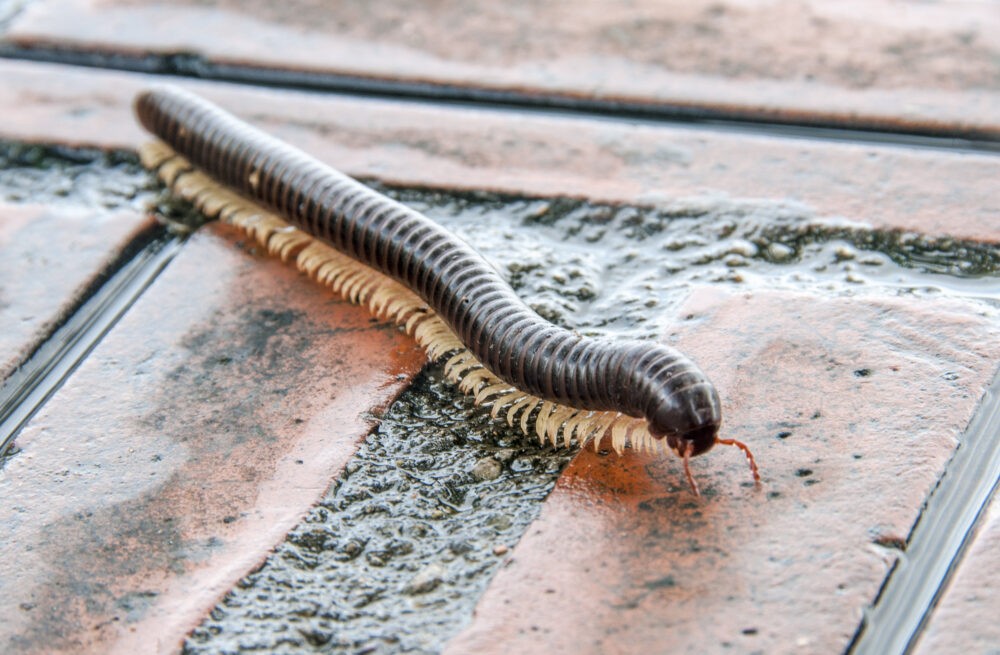Key Characteristics:
- Many-Legged Arthropods: Millipedes are multi-legged arthropods, distinguishable from centipedes by having two pairs of legs per body segment.
- Cylindrical Body: They have a cylindrical body that may range in color from brown to black.
- Decomposers: Millipedes play a beneficial role in breaking down organic matter, but they can become a nuisance when present in large numbers.
Potential Risks and Concerns:
- Non-Predatory: Millipedes are not harmful to humans as they do not bite or sting, but their presence can be unsettling.
- Moisture Attraction: Millipedes are attracted to damp and humid conditions, often entering homes seeking moisture.
- Defense Mechanism: Some millipede species release a mild irritant when threatened, which may cause skin irritation.
Preventive Measures:
- Moisture Control: Address any moisture issues by fixing leaks, improving ventilation, and reducing humidity levels.
- Seal Entry Points: Inspect and seal gaps, cracks, and openings in windows, doors, and foundations to prevent millipede entry.
- Remove Debris: Keep the area around the home clean and free of decaying plant matter, leaves, and other debris.
- Outdoor Maintenance: Trim vegetation, especially near the foundation, and maintain proper drainage to discourage millipede activity.
- Barrier Treatments: Apply barrier treatments around the perimeter of the home to deter millipedes from entering.
Professional Assistance:
If millipede populations are a concern, consider seeking professional pest control services for targeted treatments

